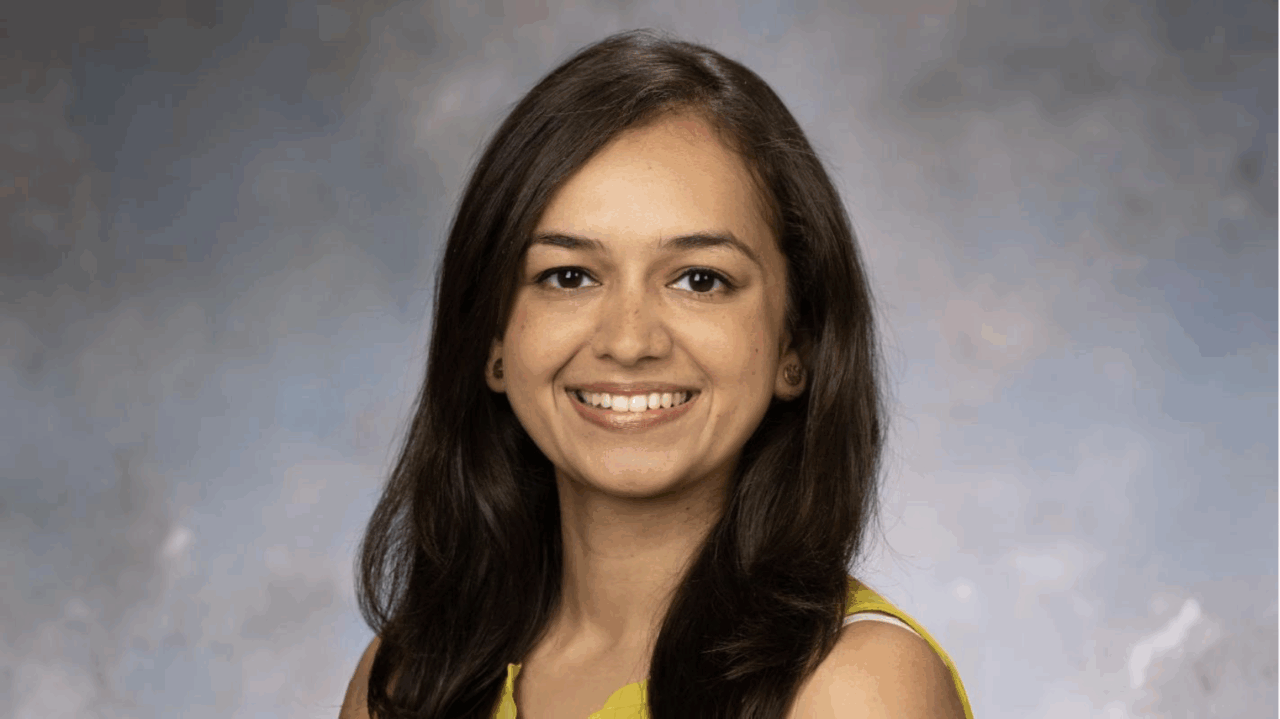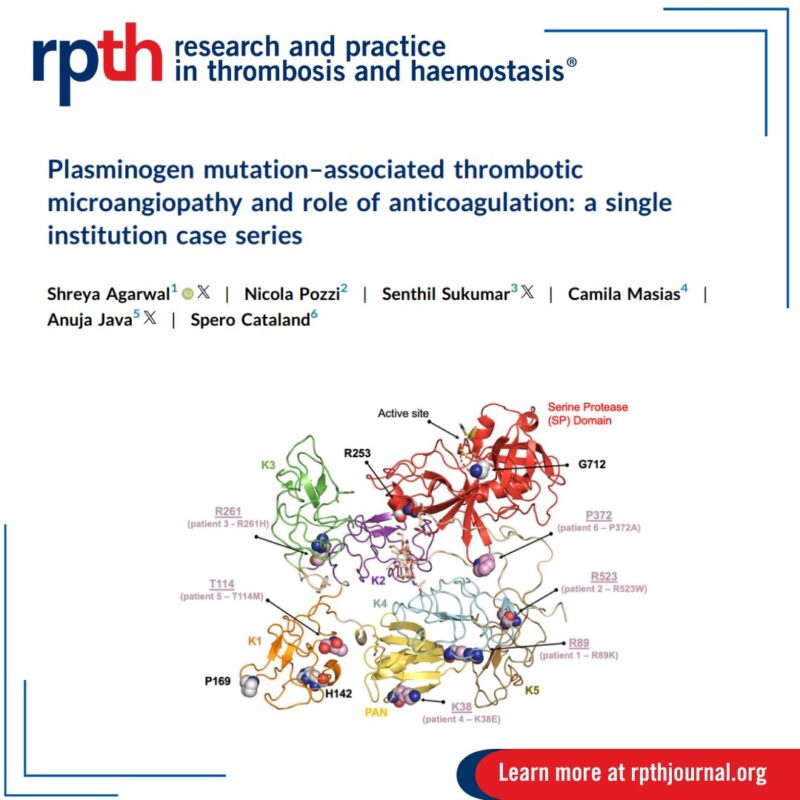
Shreya Agarwal: We Describe Patients With PLG Mutations Who Experienced Recurrent TMA
Shreya Agarwal, Assistant Professor of Pediatric Hematology at UCSF Benioff Children’s Hospitals, reposted from RPTH Journal on LinkedIn:
”Grateful to RPTH for highlighting our recent study on Plasminogen (PLG) mutation- associated thrombotic microangiopathy (TMA).
In this work, we describe patients with PLG mutations who experienced recurrent TMA despite complement blockade therapy, and raises suspicion if there is an alternate disease pathway worth exploring.
We are now hoping to assess the feasibility of a multicenter study to better understand PLG mutations-associated TMA.
If you’ve cared for patients with plasminogen mutations and TMA, we’d be grateful if you could take a few minutes to complete our short survey.
Thank you to my amazing coauthors Nicola Pozzi, Senthil Sukumar, Camila Masias MD, Anuja Java and Spero Cataland for their collaboration on this project!”
Quoting RPTH Journal‘s post:
”Not all thrombotic microangiopathies (TMAs) behave the same, and they don’t all respond to complement blockade.
In a new study, Shreya Agarwal, MD and team describe a subset of patients with plasminogen (PLG) mutations who experienced recurrent TMA despite standard therapy.
Their response to anticoagulation hints at an alternative disease pathway worth exploring.
Coauthors: Nicola Pozzi; Senthil Sukumar, Camila Masias MD, Spero Cataland’‘
Read the full article in RPTH.
Article: Plasminogen mutation–associated thrombotic microangiopathy and role of anticoagulation: a single institution case series
Authors: Shreya Agarwal, Nicola Pozzi, Senthil Sukumar, Camila Masias, Anuja Java, Spero Cataland

Stay updated on all scientific advances in the field of thrombosis with Hemostasis Today.
-
Jan 22, 2026, 15:36We Must Roll Up Our Sleeves And Help: José Antonio García Erce on Plasma Donation
-
Jan 22, 2026, 15:25Nita Radhakrishnan on Challenges In Congenital Afibrinogenemia
-
Jan 22, 2026, 15:10Jin Q Gives a Summary of 2025’s Most Impactful Cell and Gene Therapy Milestones
-
Jan 22, 2026, 14:57Nirav Dhanesha on CD14 Acting As A Functional Driver of DVT
-
Jan 22, 2026, 11:41Jamilla Goedegebuur and Colleagues on VTE Management in Case of PAD
-
Jan 22, 2026, 11:28Abdulrahman Katib on API-CAT Trial’s Evaluation of Apixaban Dosing
-
Jan 22, 2026, 11:19Bruno Odisio: Ablation Margins Are Software-Dependent
-
Jan 22, 2026, 10:38Pedro Perez: The VTE Market Is Clearly Entering Its Next Phase
-
Jan 22, 2026, 10:29Marvin Garcia Reyes Presents a Case of Aorto-Visceral and Aorto-Iliac Thrombosis
